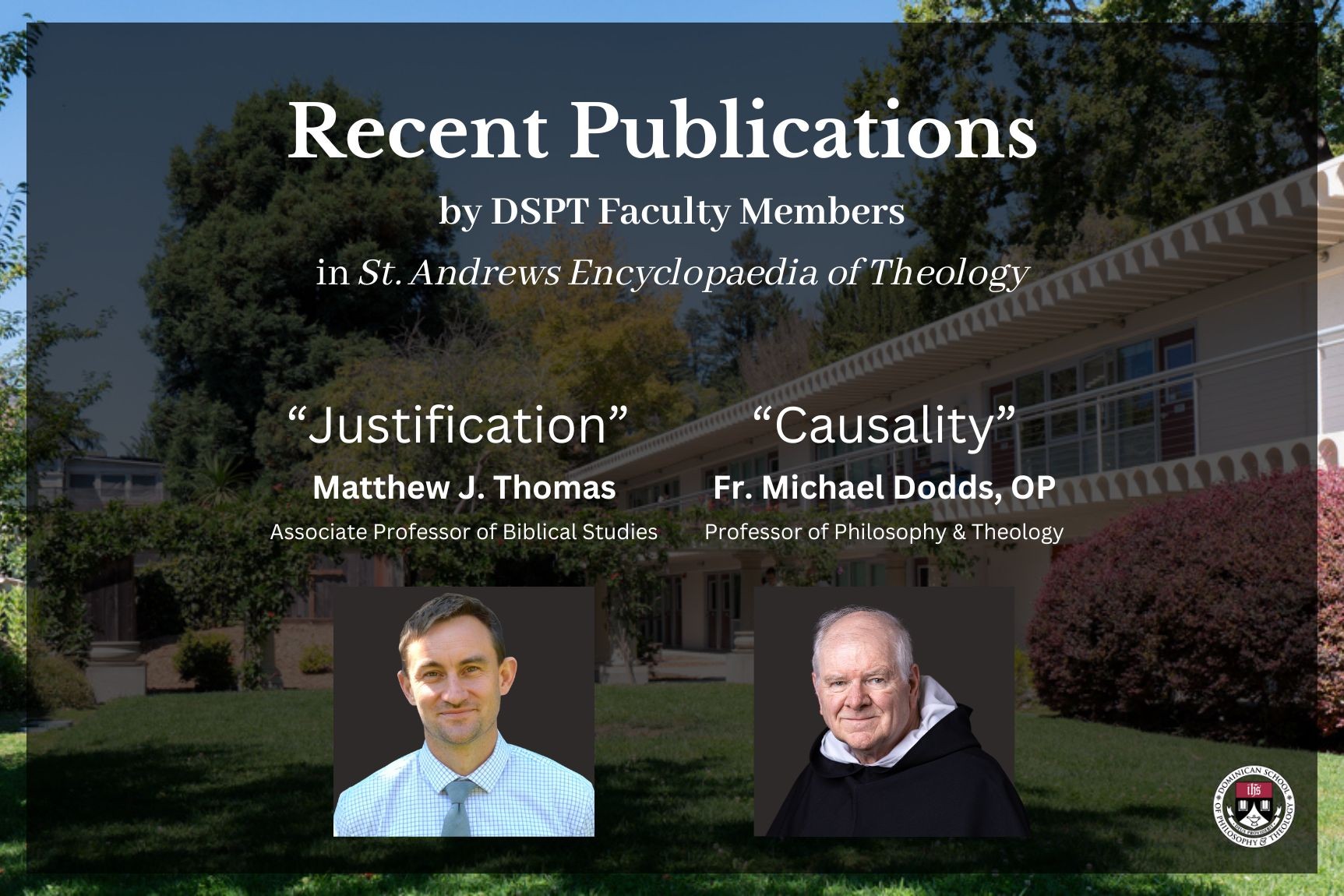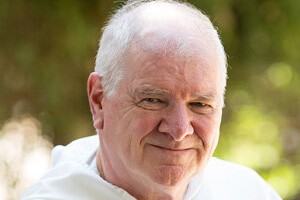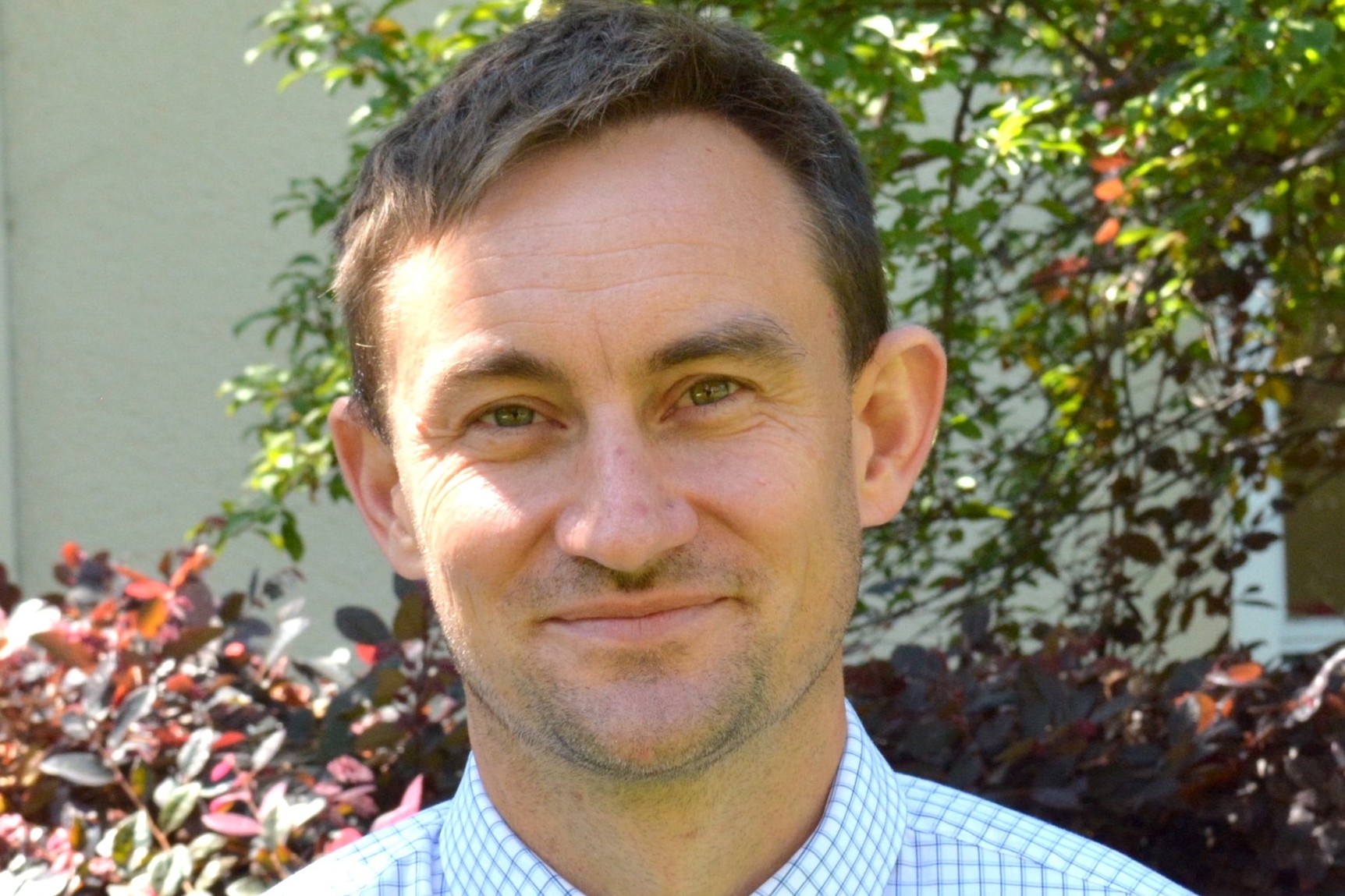Recent Publications by DSPT Faculty Members in St. Andrews Encyclopaedia of Theology

Congratulations to Fr. Michael Dodds, OP, Professor of Philosophy & Theology, and to Dr. Matthew Thomas, DPhil, Associate Professor of Biblical Studies, on their respective recent publications in St. Andrews Encyclopaedia of Theology.

"Causality is not only a central concept in philosophy and theology but also a basic aspect of human thought and speech. Causal words such as ‘making’, ‘doing’, ‘producing’, and so on, are in constant use. Philosophers have been discussing causality ever since philosophy began. Theologians require a notion of causality to speak of God’s action in the creation and governance of the world.
This article will first provide a brief review of the history of the idea of causality in Western thought and then consider how our understanding of that idea has influenced the discussion of God’s action. Western thought may be divided historically into two basic parts: classical/medieval and modern/contemporary. Although there is no strict dividing line, the Scientific Revolution may be taken as a marker. This division agrees with Menno Hulswit’s observation that ‘two decisive milestones mark the history of causality: the Aristotelian (-scholastic) Conception (I), and the Scientific Conception (II)’ (Hulswit 2004: 6). In the first period, the article will concentrate especially on the thought of Aristotle and Thomas Aquinas who present the most developed notion of causality. In the second period, it will consider how the understanding of causality was influenced by the rise of modern science (see The History of Science and Theology).
The article will show how the broad, classical understanding of causality narrowed with the advent of modern science but is now expanding again through the discoveries of contemporary science. It will then consider how the fortunes of the concept of causality have affected the discussion of divine action. In that context, it will take particular note of the understanding of God’s causality in scripture, prayer, and miracles."

“Within Christian theology, justification refers to the act whereby human beings are established as righteous before God. The doctrine of justification is distinct within the history of theology both for the importance ascribed to it – Martin Luther, as one prominent example, asserts that the church is built by this doctrine alone (Luther’s [LW] 26.10) – and for the large number of questions and controversies surrounding it. To take a few examples: is justification essentially a legal action in which humans are forgiven, or an effective one in which they are transformed? Does justification refer to a present reality, a future one, or both? How does justification – a doctrine normally associated with the writings of the apostle Paul – cohere or conflict with teachings found elsewhere in the Christian scriptures? While such questions have not proved contentious in every age, conflicts surrounding them at key points in the history of theology have contributed to divisions between churches and denominations, many of which persist to the present day.”
Dodds, Michael J. O.P. 2023. 'Causality', St Andrews Encyclopaedia of Theology. Edited by Brendan N. Wolfe et al. https://www.saet.ac.uk/Christianity/Causality
Thomas, Matthew J. 2023. 'Justification', St Andrews Encyclopaedia of Theology. Edited by Brendan N. Wolfe et al. https://www.saet.ac.uk/Christianity/Justification